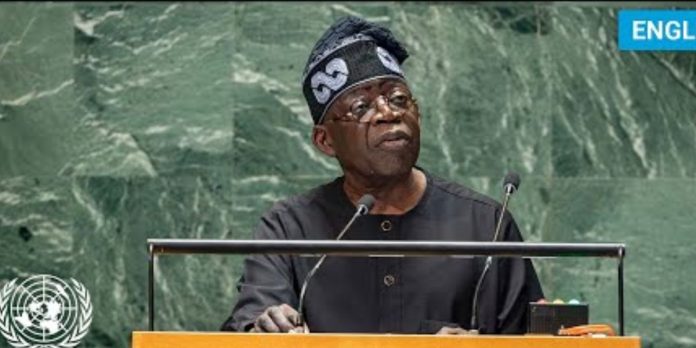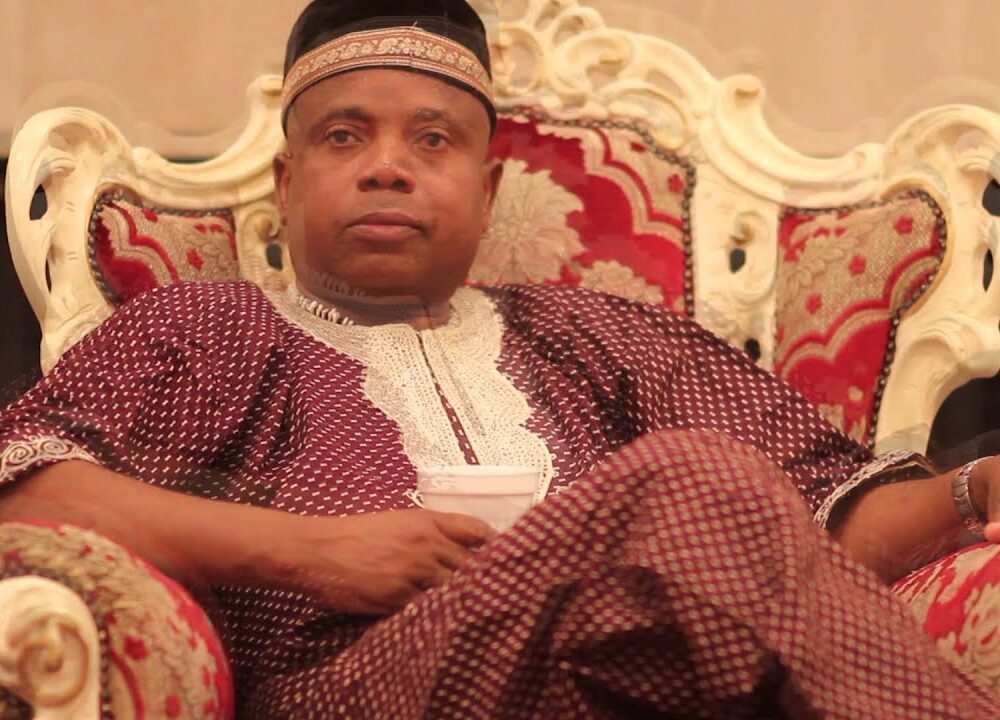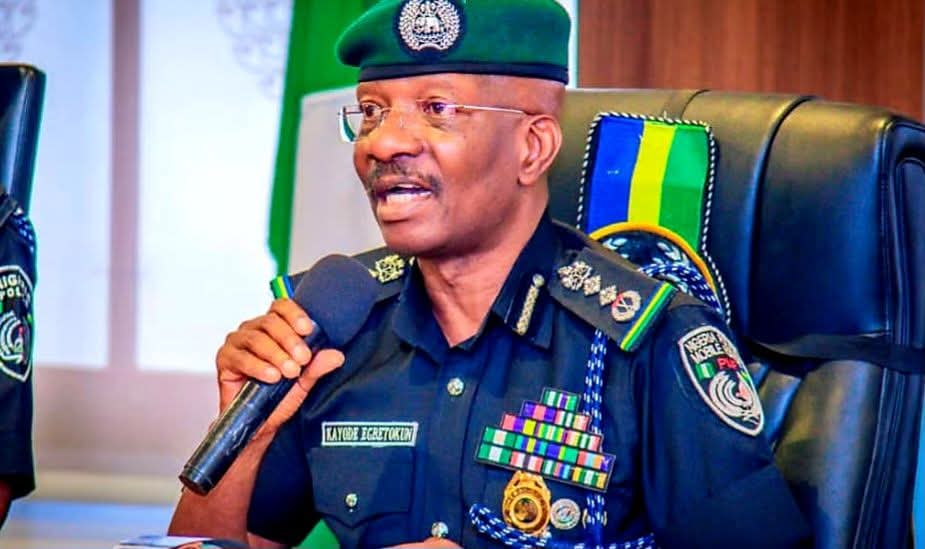The Saturday, October 5, 2024 meeting of major stakeholders and apparatchiks of the All Progressives Party (APC) in the Southwest geopolitical region, which was reportedly coordinated by His Excellency Babajide Sanwo-Olu, the governor of Lagos State, and held at the Eko Hotels and Suites where the former governor of Ekiti State, His Excellency Dr. Kayode Fayemi delivered the keynote address couldn’t have come at an auspicious moment.
Given the party’s worrisome and increasing negative public perception not only in its core base of the Southwest but other geopolitical regions—-no thanks to the hardship in the land happening under the ruling APC’s watch—-and its other unforced errors (at least from the viewpoint of someone on the outside keenly looking in), whether a day was sufficient enough to trash out the multifaceted problems of the party, some of which are, quite frankly, existential is another matter entirely.
But there’s no question that the convening of the Southwest Assembly was a good starting point that one hopes would birth further deliberations with a more holistic approach to the future of this potentially great party.
While there’s a lot to celebrate about the APC in its relatively short spate it has been in existence as to its many “firsts” in infrastructural developments and novel, ideational, development-focus policies as briefly articulated by the former governor Fayemi in his address, not to talk of the party’s attempt to stay true to the progressive tenets, specifically in the administration of President Tinubu, the lack of understanding the grundnorm of progressivism in a liberal democracy by its riders, minders and custodians—-it seems to me—-may well be the real challenge that must be surmounted if the party must have a longer, relevant and impactful shelf life. And this will be interrogated presently.
But before one barges into this relatively uncharted path of progressive ideology for the nation’s political landscape, it should be noted that there’s no perfect anything, let alone a political party in an environment such as we have where requirements for accessing power are not based on anything, the very least of which is some higher ideals that necessarily should have defined the environment and individual practitioners of politics, but some primeval desires of resource appropriation and power warehousing for its sake. From the foregoing, therefore, it is proof-positive that we haven’t advanced that much from the hunting and gathering status of our early and perhaps prehistoric forebears. But that’s another fine kettle of fish for another day.
From the aforesaid alone, there’s, therefore, no need to consult a crystal ball to know that it’s a question of time before political parties in such an environment come to grief, as we witnessed in several political parties since the beginning of this dispensation, if not before. APC may not be an exemption unless they get their acts together. And very fast.
First, from a macro standpoint, it’s a paradox of some sort that the necessary conditions that made it possible for APC to not only come into existence but to have accomplished so much within a short space of time in the country’s political economy are the selfsame conditions that are threatening its very existence today.
It should be noted that the APC was willed into existence because of the presence of a common thread between the ACN, CPC, ANPP and a faction of APGA of shared passion, readiness, willingness and, most importantly, quid pro quo proclivities of the head honchos in these erstwhile parties to win power while they held, and still holds, tenaciously to the mores, sociocultural ethos and worldviews that undergird their identities and that of the geopolitical regions they represent, and has defined them overtime.
While the ACN wing of the merger represents the progressive political ideology as laid down by their political progenitor from Ikene and hoping that their comrades in the power alliance would soon experience their Pauline Conversion into progressivism, the CPC, on the other hand, was probably thinking that it’s a matter of time before others embrace their much coveted conservative political ideology—- perhaps as also laid down by their Sardauna, a brand of conservatism that is intricately tied to, if not rooted in ethnic exceptionalism and religious supremacy—-as the best option for the polity.
APGA perhaps couldn’t be bothered by the two ideological polarities of their two superiors in the merger and is ensconced in what can best be described as mercantilism while ANPP feels perfectly at home at peace with the CPC in its conservative redoubt that they even threw “Buharism” (whatever that means) into the ideological spectrum. Thus, a perfect storm of Mutually Assured Destruction (MAD) cannot be more ominous.
After the electoral victory of the APC in which it was the CPC faction that produced the president in the former President Muhammadu Buhari, it was primarily the CPC tendency in the legacy party—-with a coterie of ‘outsiders’ who had nothing to do with the party’s electoral victory, not to say those who intentionally worked against it during the campaigns—-that dominated Buhari’s government at every major strata at the utter detriment of the three political parties in the merger.
Whatever presence, relevance, and policy formulation ACN, ANPP, and factional APGA had in the Buhari administration was, at best, tokenism as opposed to a real partnership. Perhaps it was the observation of this anomaly in the merger by Hajia Aisha Buhari, the wife of the former president who was obviously discomfited about the state of health of the legacy party when she quipped that her husband didn’t know most of the ministers working for him then.
Mrs. Oluremi Tinubu (now the wife of the president) also underscored this fact as well as reminded us about how not to enter into a political marriage in which the kernel of the relationship is devoid of a shared ideological component when she said in no uncertain terms, during a TV appearance, how her husband (now President Tinubu) was shabbily treated in the aftermath of former President Buhari’s electoral victory in 2015.
Hear her: “I was hurt by, you know, what they did to my husband after the campaign. Occasionally I’ll chip in and say, you’re still helping out? Why are you helping out?”
It should be noted that what’s patently discernible in the alliance that birthed the APC are some variegated, mutually suspicious, if not antagonistic, sociocultural dispositions of the partners in the merger, which has always affected, and continues to affect their approach to politics, governance, and developmental paradigm and never any mutually binding ideational attributes of the partners.
Whatever accomplishments that had the trappings of the progressive ideology recorded in the Buhari administration had absolutely nothing to do with his belief in and identification with progressivism, as the former president is scrupulously as conservative as they come. This is why the former president refused to be detained by the time-tested rotational presidential arrangement between the Northern and Southern dichotomy that has significantly contributed to peace and amity in the polity when he surreptitiously pulled the strings from relative obscurity for Ahmed Lawan to succeed him and failed, perhaps to his chagrin and consternation.
Alhaji Abdullahi Adamu, the former National Chairman of his party was so incensed by this failure that he could not hide his discomfiture in the manner that Buhari’s plan was truncated by the young Turks of then Northern governors who insisted on fairness and the need to maintain fidelity to the rotational principle that he wondered aloud in an interview if these governors had not lost their minds. Adamu said in that interview in no uncertain terms that he saw nothing wrong with the North controlling the levers of political power in perpetuity. It doesn’t get any more bizarre than that.
Thus, while not a few in the progressive fold of the merger were appalled and felt deeply cheated and betrayed by the treatment meted out to their National Leader, not to talk of a significant number of them holding the very short end of the stick despite their heavy lifting that culminated into Buhari’s electoral victory until the very end of his administration, yet, their gripe was nothing to lose any sleep over by the conservative tendency of which Buhari himself was their arrowhead in his administration. Political isolation and humiliation cannot be more dire than that.
Now that the shoe is on the other foot, it’s now the turn of the conservative wing of the Legacy party to shout blue murder and throw stones at virtually anything and everything President Tinubu did and is about to do.
The presidential crown had hardly settled behind his ears when these conservative elements within the party went to town with their de-marketing strategy against both the executive and legislative branches. And it didn’t matter that what President Tinubu is deftly and painstakingly trying to do is instituting social reforms in consonance with progressivism of which they’re a part as major stakeholders in the party by resetting the nation’s political and economic templates for the benefit of all and sundry, most especially themselves and their geopolitical regions that have become almost irreversibly blighted by this same neandathalic political ideology in a knowledge-driven, technologically-inspired 21st-century world.
Thus, it was very easy for Saliu Lukman (representing the right battalion) with his jejune and vacuous excuse of why Tinubu must be prevented from getting a second term because of what he described as his inaccessibility and a deranged Kaduna cleric (representing the far religious right) who could no longer hide his disdain for the president for his audacity to reset the political and economic templates for the benefit of all ethnic nationalities that he called the FCT minister an infidel just because a Southerner is superintending over the affairs of the FCT. They must act in accordance with their ideological moorings.
From the foregoing, it can be concluded that the problem with the APC is not in its star but in the ability and willingness of its minders to carefully choose the right and enduring ‘seeds’ for the sustenance of its genealogy in already polluted land populated with contaminated ‘seeds’. This, it seems to me, is the major challenge.
*Femi Odere is a Senior Legislative Aide (Stakeholders’ Engagement and Mobilization) to the Senate President. He can be reached at femiodere@gmail.com.





